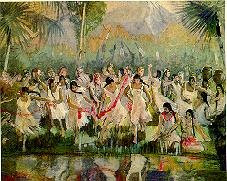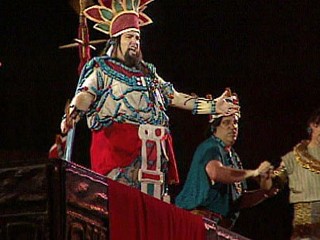I so admire Zeezrom's humility. He had painted himself in a horribly embarrassing corner. Even so, he realized his real predicament and chose to deal with the eternal problem rather than the social one. In so many ways, social pressure helps us to corner ourselves into nearly impossible situations. Thankfully, Heavenly Father will let us off the hook if we'll just reach out for help.
This verse, seems so wonderfully important and so frequently neglected. We in the Church are blessed with so much wonderful information. So often we don't follow the Spirit with regard to how that knowledge is shared. We get a nice piece of revelatory steak and in misguided zeal we choke the life out of new comers who haven't yet cut their spiritual teeth. I hear people complain that the General Authorities give what they call milk toast, same old same old, sermons in General Conference. I am sure that these brethren understand things to a depth way beyond my realization. Still, in compliance with this important verse, they teach precisely what the Lord requires of them. If we are in tune, the depth and breadth of those precious sermons can fill the capacity of our preparation.9 And now Alma began to expound these things unto him, saying: It is given unto many to know the mysteries of God; nevertheless they are laid under a strict command that they shall not impart only according to the portion of his word which he doth grant unto the children of men, according to the heed and diligence which they give unto him.






























